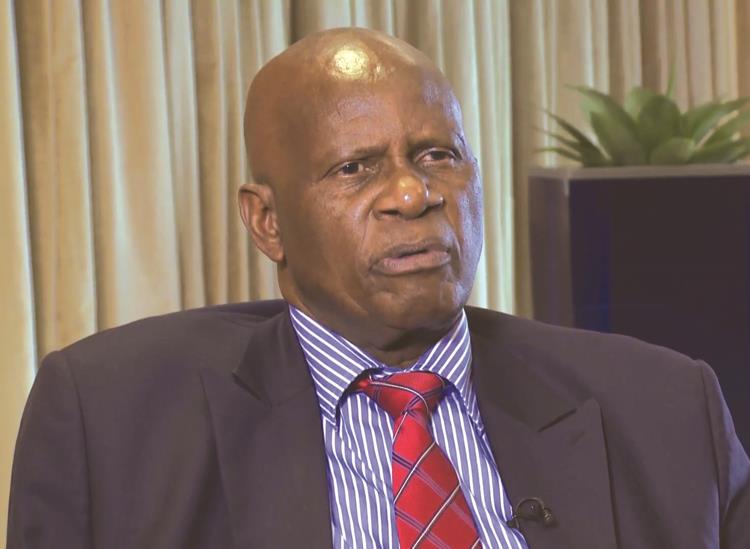
The Sunday Mail

Kuda Bwititi
Chief Reporter
Government has ordered all public offices to accept payments for goods and services in any legal tender in the official basket of currencies adopted between 2009 and the present, with the Finance Ministry declaring Zimbabwe is not “a US dollar economy”.
Most providers of goods and services demand payments in United States dollars even though eight other currencies are legal tender in Zimbabwe.
The Reserve Bank of Zimbabwe is also expected to reconfigure the local Real Time Gross Payment System (RTGS) to process multiple currencies, with the Finance Ministry saying Zimbabwe is “not a US dollar economy”.
And as US dollar cash shortages negatively affect livelihoods and commerce, Government wants wider use of other currencies, particularly the South African rand.
Yesterday, Finance and Economic Development Minister Patrick Chinamasa said, “In order to restore functionality of the multi-currency system, Treasury – through the Permanent Secretary Mr Willard Manungo – yesterday (on Friday) issued a directive to all Government departments, parastatals and line ministries which offer services or sell goods to accept payments in all multi-currencies under the basket of currencies.
“The directive also applies to local authorities which means that ratepayers can now be able to pay for services through any
currency that is in the basket.
“When we say all currencies, we mean the basket of currencies which were announced by the RBZ. The full basket of multi-currencies accepted by the RBZ are the US dollar, US dollar, the South African rand, the Botswana pula, British pound sterling and the euro, Chinese yaun, Indian rupee and Japanese yen.
“The directive also stated that any Government department or parastatal which received payment in rand or other currencies can sell any excess amounts that they have to the RBZ. Overtime the expectation is that the RBZ will build a poll of currencies other than the US dollar,” Minister Chinamasa said.
He said the directive would ease US dollar cash shortages.
“Our challenge was that we were only using the US dollar as a medium of exchange. What this means is that other currencies will now be easily available and this will help to reduce the cash shortages over time.
People have been reluctant to accept the rand because of its volatility, but Minister Chinamasa said “that should not be much of a problem as the RBZ will readily accept exchange of all these currencies under the basket”.
Most public offices were rejecting rand payments in blatant disregard of official policy recognising a basket of currencies.
Local authorities, tax agency Zimra, roads regulator Zinara, the Registrar-Generals Office, Higher and Tertiary Education institutions, public health institutions, Police, courts and the Vehicle Inspection Department demand US dollar payments.
Earlier in the week, Minister Chinamasa told The Sunday Mail he was “surprised that our own Government departments are refusing multiple currencies such as the rand”.
“We cannot have our own Government systems rejecting the rand or other currencies at a time we are experiencing cash challenges.”
Minister Chinamasa urged the public to embrace central bank efforts to bolster a multiple currency regime rendered dysfunctional by over-reliance on the US dollar.
“People really need to understand that we are not a US dollar economy, but we are a multiple currency economy, so we cannot have Government departments failing to lead from the front,” he said
“There should be a system where tariffs are pegged in different currencies to facilitate easy payments when people can bring in money such as the rand, pula, euro and British pound.”
Economist Mr Kingstone Khanyile said Government could easily make use of the RBZ’s daily exchange rates to implement multiple currency payments for public institutions.
“First of all Government should issue a clear directive to all payment offices under their purview that they should accept payments in the rand currency.
“The RBZ comes up with daily exchange rates of how the US dollar is trading with other currencies so these can be communicated to all Government payment offices, or simply set up electronic exchange boards displaying the daily value of the currencies.”
In a statement last month on policy measures to deal with cash shortages, the RBZ noted that it was important to “restore the fundamental principles of the multi-currency system through increasing availability and usage of the other currencies within the multi-currency basket”.
Last week, Bankers Association of Zimbabwe president Mrs Charity Jinya acknowledged that continued rejection of the rand was unsustainable.
She told the Parliamentary Portfolio Committee on Finance that the rand should be adopted as the main transacting currency to reduce concentration risk on the US dollar.
The BAZ president said the US dollar should be reserved for making off-shore payments and local electronic transactions.
RBZ statistics show that when the multiple currency regime was introduced in 2009, there was 49 percent usage each of the rand and US dollar, and two percent for other currencies.
But now, use of of the US dollar has reached 95 percent of all transactions. South Africa’s rand accounts for nearly all other transcations with little to no reflection of use of any of the other currencies that Government hsa adopted as legal tender.



